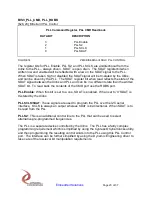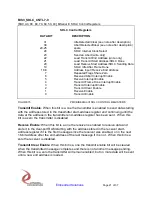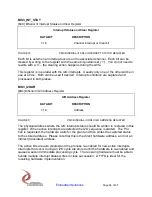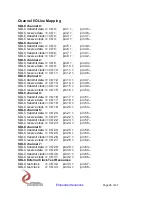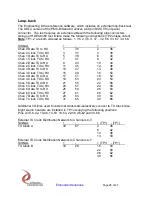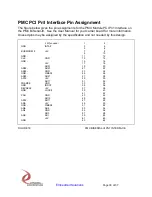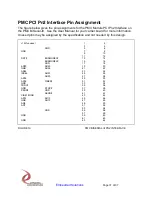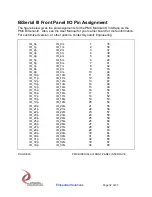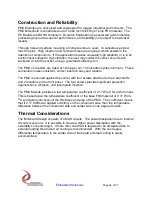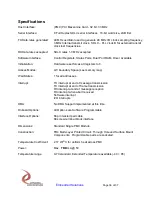
Embedded Solutions
Page 34 of 37
Construction and Reliability
PMC Modules are conceived and engineered for rugged industrial environments. The
PMC BiSerial-III is constructed out of 0.062 inch thick High Temp FR4 material. The
PC Boards are ROHS compliant. Dynamic Engineering has selected gold immersion
processing to provide superior performance, and reliability (not subject to tin whisker
issues).
Through hole and surface mounting of components are used. IC sockets use screw
machine pins. High insertion and removal forces are required, which assists in the
retention of components. If the application requires unusually high reliability or is in an
environment subject to high vibration, the user may solder the corner pins of each
socketed IC into the socket, using a grounded soldering iron.
The PMC connectors are rated at 1 Amp per pin, 100 insertion cycles minimum. These
connectors make consistent, correct insertion easy and reliable.
The PMC is secured against the carrier with four screws attached to the 2 stand-offs
and 2 locations on the front panel. The four screws provide significant protection
against shock, vibration, and incomplete insertion.
The PMC Module provides a low temperature coefficient of 2.17 W/oC for uniform heat.
This is based upon the temperature coefficient of the base FR4 material of 0.31 W/m-
oC, and taking into account the thickness and area of the PMC. The coefficient means
that if 2.17 Watts are applied uniformly on the component side, then the temperature
difference between the component side and solder side is one degree Celsius.
Thermal Considerations
The BiSerial III design consists of CMOS circuits. The power dissipation due to internal
circuitry is very low. It is possible to create a higher power dissipation with the
externally connected logic. If more than one Watt is required to be dissipated due to
external loading then forced air cooling is recommended. With the one degree
differential temperature to the solder side of the board external cooling is easily
accomplished.

